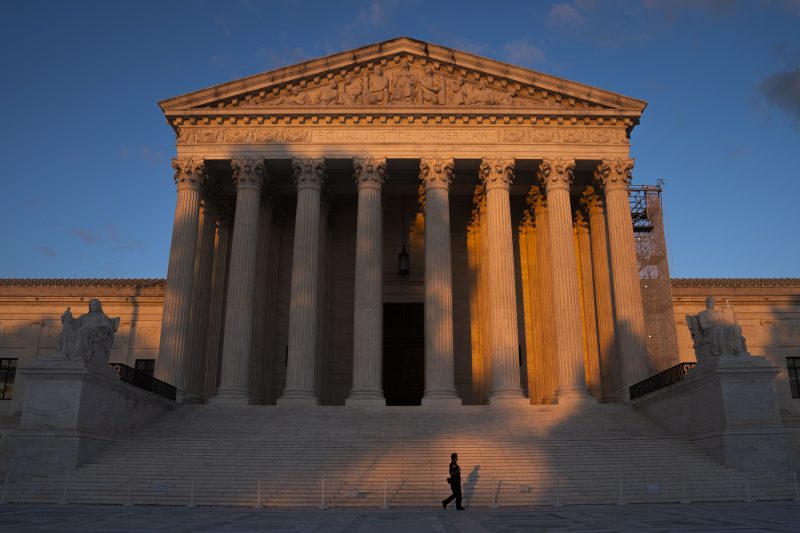In a recent Texas emergency abortion case that has garnered national attention, the Supreme Court has made a significant decision by declining to intervene in the matter. This move by the highest court in the land has left many wondering about the implications of the decision and what it means for reproductive rights and access to abortion in Texas and beyond.
The case in question revolves around a new Texas law known as Senate Bill 8 (SB8), which effectively bans most abortions after around six weeks of pregnancy. This law stands out from others in its approach, as it allows private citizens to enforce the ban by suing anyone who performs or aids an abortion after the specified time period. This unique enforcement mechanism has drawn controversy and legal challenges since its inception.
The decision by the Supreme Court not to step in at this stage has frustrated many advocates of reproductive rights. The refusal to block the law has effectively allowed it to remain in place, creating a situation where individuals in Texas face significant obstacles to accessing abortion services.
One of the key concerns raised by opponents of SB8 is that the law infringes upon the constitutional right to abortion established in the landmark Roe v. Wade decision. By allowing private citizens to enforce the ban through lawsuits rather than relying on government officials, the law essentially circumvents traditional legal avenues for challenging restrictions on abortion.
Furthermore, the six-week cutoff imposed by SB8 is particularly controversial, as it effectively bans most abortions before many individuals even realize they are pregnant. This limitation severely restricts access to abortion services and disproportionately affects marginalized communities with limited resources and support.
The decision of the Supreme Court not to intervene in the Texas emergency abortion case has broader implications for the future of reproductive rights in the United States. It raises questions about the judiciary’s role in upholding constitutional protections and ensuring access to essential healthcare services for all individuals.
Advocates for reproductive rights are likely to continue challenging SB8 and similar restrictive laws through legal channels, hoping to eventually secure a ruling that protects the right to abortion and ensures equitable access to reproductive healthcare. In the meantime, individuals and organizations dedicated to preserving these rights will need to navigate a complex and uncertain legal landscape in their ongoing efforts to safeguard essential freedoms.
As the debate over abortion rights continues to unfold in the public sphere and within the halls of power, it is clear that the Supreme Court’s decision regarding the Texas emergency abortion case will have far-reaching consequences for individuals across the country. The fight for reproductive justice is far from over, and the outcome of this case serves as a stark reminder of the ongoing challenges and barriers faced by those seeking to protect and expand access to essential healthcare services.




























